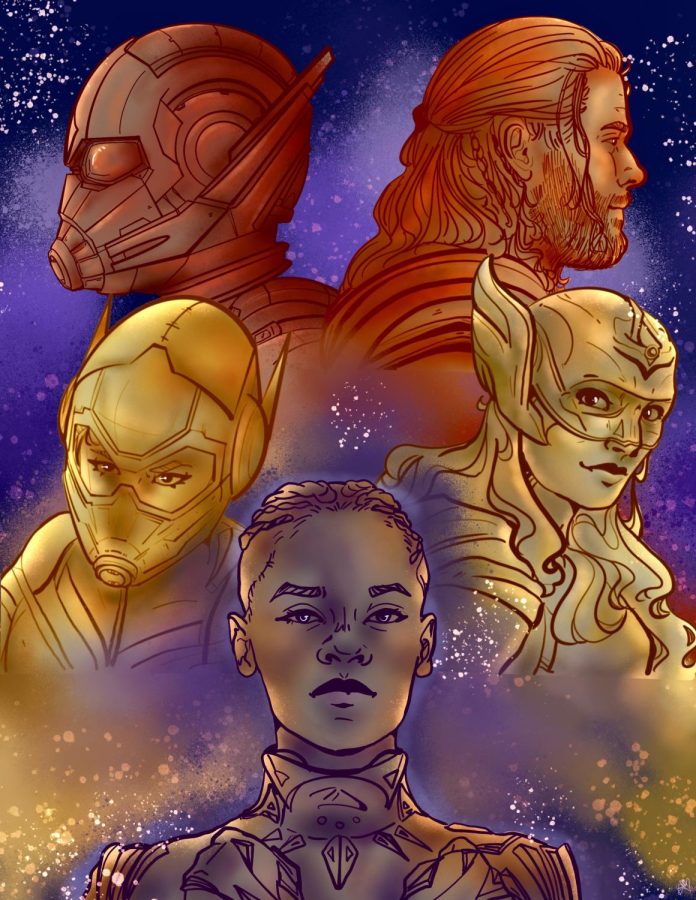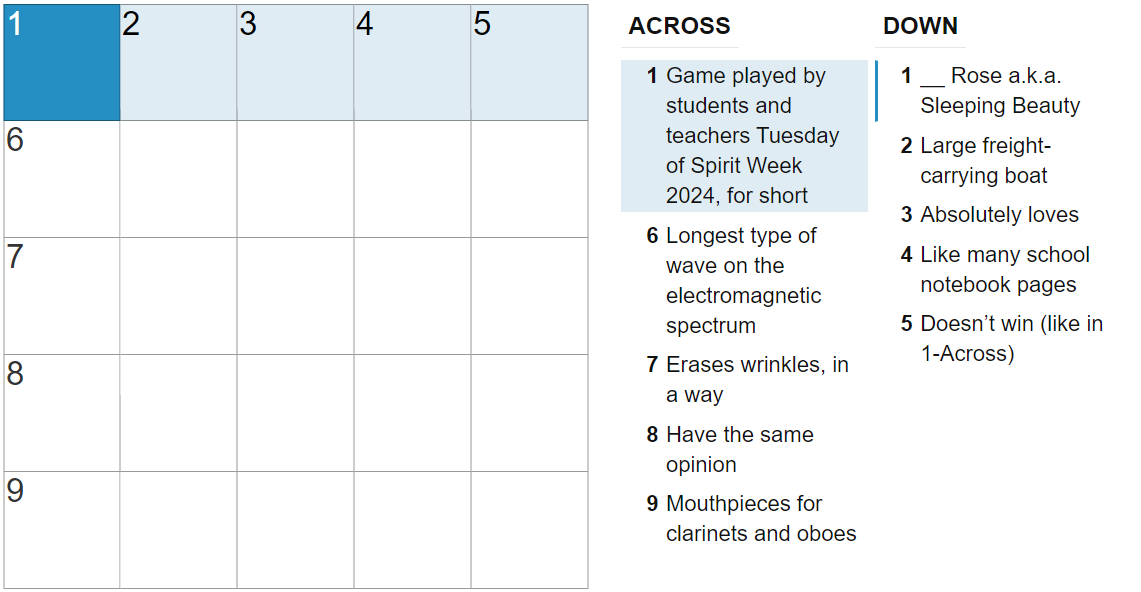A correction was made to this story on 04/19/2023
In the story, the movie titles in the disclaimer “Doctor Strange and The Multiverse of Madness” (2022), “The Avengers” (2012), “Loki” (2021), and “Ant-Man and the Wasp: Quantumania” (2023) were written without quotes. The disclaimer was corrected to have proper grammar.
The story below has been corrected with the noted revisions.
*DISCLAIMER: The following article contains brief descriptions of the plots and endings of “Doctor Strange and The Multiverse of Madness” (2022), “The Avengers” (2012), “Loki” (2021), and “Ant-Man and the Wasp: Quantumania” (2023)
After the Avengers save the world from Loki, the film’s main villain, agent Nick Fury gives a speech to a board of government officials explaining why the Avengers need to exist. The Avengers all go their separate ways, Loki is taken back to Asgard by Thor, Captain America rides off on his motorcycle into the sunset, and Tony Stark lays out the designs for rebuilding Stark Tower into Avengers Tower.
Take that classic ending scene from “The Avengers” (2012) versus the ending scene from the more recent Marvel movie, “Doctor Strange in the Multiverse of Madness” (2022): Doctor Strange exits the Sanctum Sanctorum, having (supposedly) quelled the multiversal threat that Scarlet Witch posed. However, as he walks down the streets of New York, he suddenly falls to the ground in pain and a horrible CGI third eye pops out on his forehead.
This ending scene represents a lot of the problems that the current MCU has: the awful CGI, the sudden unresolved ending, the fact that this is what the creators of the film wanted to leave people with after watching, and a jarring ending that yells “sequel!” without giving the viewer any sense of closure. And during the end credits scene, Doctor Strange talks to another sorcerer, his third eye still on his head but no longer affecting him, completely undermining the tension and shock of the ending. Not only does this make the previous scene feel pointless, but it also contradicts the plot of the entire movie.
The ending scene works, at least on paper. The eye serves as a repercussion for Doctor Strange for using the Darkhold, an evil spell book that has terrible effects on whoever uses it. The point of the third eye is to serve as a permanent reminder of his bad choice, using the darkhold. By making him suddenly unaffected and seemingly content with the eye, it means that it isn’t a punishment, and this book that was long built up to be dangerous actually wasn’t,. . . at least that is how it appears in that scene.
At the end of the original “Avengers,” I had no major questions left unanswered. I felt content and satisfied with the well thought out resolution. The ending of “Doctor Strange in the Multiverse of Madness” not only left me unsatisfied and upset, but outright disrespected. I felt like my investment in and time watching the movie meant nothing, because the filmmakers didn’t care enough about their audience to create a deliberate ending.
But that’s just one scene, right? Just one ending to a movie that couldn’t possibly be applicable to all of the recent MCU films, right? Wrong. The problems lie not only within this scene, but within the MCU as a whole.
The flawed CGI has been present throughout many of Marvel’s recent projects, such as the abysmal floating head of Axl in “Thor: Love and Thunder” (2022), the obvious green screening in the climax of “Black Widow” (2021), and the strangely tacky transformations in “She-Hulk: Attorney at Law” (2022).
Marvel used to have a fair track record for special effects, and while it wasn’t always perfect, at least it looked like effort was put in.
So what’s the difference now? I think a large reason why Marvel CGI looks so much worse nowadays is because MCU special effects employees are being forced to work on more projects in a shorter time frame. In the early phases of the MCU, about two Marvel movies were released per year; eventually, that increased to three a year around the time of “Avengers Infinity War.” However, in 2021, Marvel released a staggering four movies and five TV projects and the next year only continued this trend.
All of these projects used special effects, and with around 8 projects going on per year, it’s safe to say animators are being stretched thin resulting in the new animations being less realistic than those in previous works. According to a 2023 article about the underpaying of Marvel’s VFX artists by CBR, Marvel “regularly employs one artist to do a job for which other studios would hire three.”
Still, this isn’t even what I’d consider the MCU’s biggest problem. Despite creating as many projects in the past two years as early Marvel did in ten, the movies lack something that gave the MCU its popularity in the first place: a connection.
The old MCU movies still felt connected through the use of recurring characters that would show up in many of the movies, such as Black Widow showing up in “Iron Man 2” (2010) or Iron Man showing up in “Spider-Man: Homecoming” (2017). Despite occasional crossover appearances, such as Doctor Strange appearing to help Spider-Man in “Spider-Man: Far from Home” (2021), the films feel less connected than ever. Movies can take place in the same area but the characters from each won’t interact. What’s the point of being a “Cinematic Universe” when your characters and plots feel so incredibly disconnected?
The disconnection of the films can even be felt in the MCU’s new overarching villain, Kang the Conqueror, as he wasn’t even established as a real threat until the most recent MCU movie, “Ant-Man and the Wasp: Quantumania” (2023). Although, calling him a threat is a bit of a stretch, considering the fact that he gets defeated by a group of ants at the end of the movie. Real menacing.
With all that being said, I don’t hate the modern MCU. Some movies and shows, such as “Loki” (2021) and “Spider-Man: No Way Home” (2021), are actually very good and I’d recommend watching them. The problem comes when filmmakers with interesting ideas fail to execute them in a way that is entertaining or satisfying. I still think there’s hope for the MCU, and when the day comes where MCU movies are finally good again, I’ll be first in line to watch.




























































